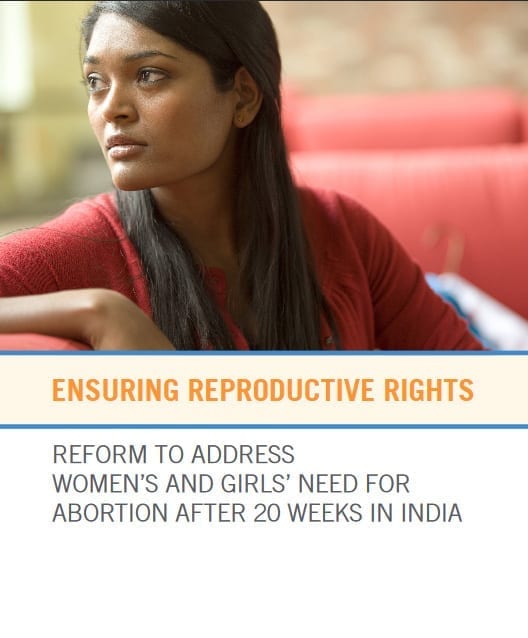Indian High Court Orders Haryana Government to Respond to Allegations of Denying Women Modern Contraceptives
(PRESS RELEASE) Today, Chief Justice Sanjay Kishan Kaul of the High Court of Punjab and Haryana at Chandigarh ordered the government of Haryana to respond within a month to a petition alleging that its reproductive health policy and programs discriminate against women by limiting information and access to a full range of modern contraceptives.
Last November, the Human Rights Law Network (HRLN)—with technical support from the Center for Reproductive Rights—filed a petition with the High Court on behalf of Dr. Jagmati Sangwan through Himmat Mahila Samooh, a leading woman’s empowerment NGO.
Despite national health policies requiring that information on and access to all forms of modern contraceptives be made available, the Haryana government has disproportionately promoted only female sterilization at the expense of access to all other methods for years.
The contraceptive needs of many women—including married girls, survivors of sexual violence, and those seeking to time and space their pregnancies—are ignored under these state policies that favor sterilization and even offer monetary compensation to women who undergo sterilization.
“Denying women access to a full range of modern contraceptives is just another example of how the Haryana government systematically discriminates against and disempowers women in the state,” said Payal Shah, senior legal adviser for Asia at the Center for Reproductive Rights.
“Women worldwide have a fundamental right to decide if and when to have children, and access to the information and means to do so. It’s time the Haryana government stopped robbing women of their right to control their fertility, health and lives.”
In the petition, HRLN is holding the Union of India, the state of Haryana, the Ministry of Health and Family Welfare and the Department of Women and Child in Haryana, accountable for failing to provide universal access to a full range of modern contraceptives and promoting one method in blatant pursuit of a population control agenda, undermining and violating women’s health and rights as mandated by India’s constitution and international law.
“Limiting women’s access to reproductive health care choices as a means to curb population growth shows a reckless disregard for women’s fundamental human rights,” said Melissa Upreti, regional director for Asia at the Center for Reproductive Rights.
“Despite a national pledge to promote voluntary family planning, the Haryana government has taken a paternalistic approach to women’s health that undermines their dignity and rights under national and international law.”
HRLN is asking the High Court to order the state of Haryana to fulfill its positive obligation to ensure women’s access to contraceptives. This includes implementing policies to ensure all public health facilities have adequate stock and can provide a full range of modern contraceptives and relevant reproductive health information, educating all health workers on modern contraceptives as well as putting an end to the promotion of a specific contraception method over all others.
“Inadequate access to modern contraceptives in Haryana is a human rights violation, and part of the continuum of indignities women in Haryana experience from birth,” said Colin Gonsalves, Founder of the Human Rights Law Network and Senior Advocate, Supreme Court of India. “The Constitution of India demands equal rights and protections for women’s and girls’ fundamental rights to life, health, dignity, and equality.”
According to a Jindal Global Law School study launched in 2013 on access to contraceptives in Haryana, nearly 86 percent of unmarried women expressed the view that they did not know about modern contraceptive options.
Lack of information and access to contraception increases the number of unwanted pregnancies and women’s and girls’ risks of maternal mortality and morbidity, including from unsafe abortion. More than half of the abortions performed in India are unsafe, leading to an estimated 12,000 women dying each year from clandestine abortion complications.
The Center for Reproductive Rights provided technical support to HRLN on the Haryana petition, which was developed as part of the South Asia Reproductive Justice and Accountability Initiative (SARJAI), a partnership spearheaded by the Center bringing together lawyers in the region to promote the use of legal accountability strategies, including litigation, to address ongoing violations of women’s reproductive rights in South Asia, resulting from government failure to ensure access to contraceptive information and services and access to safe abortion.

